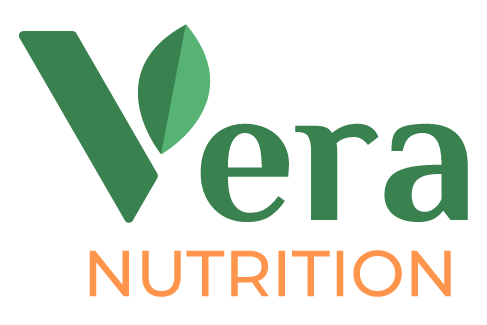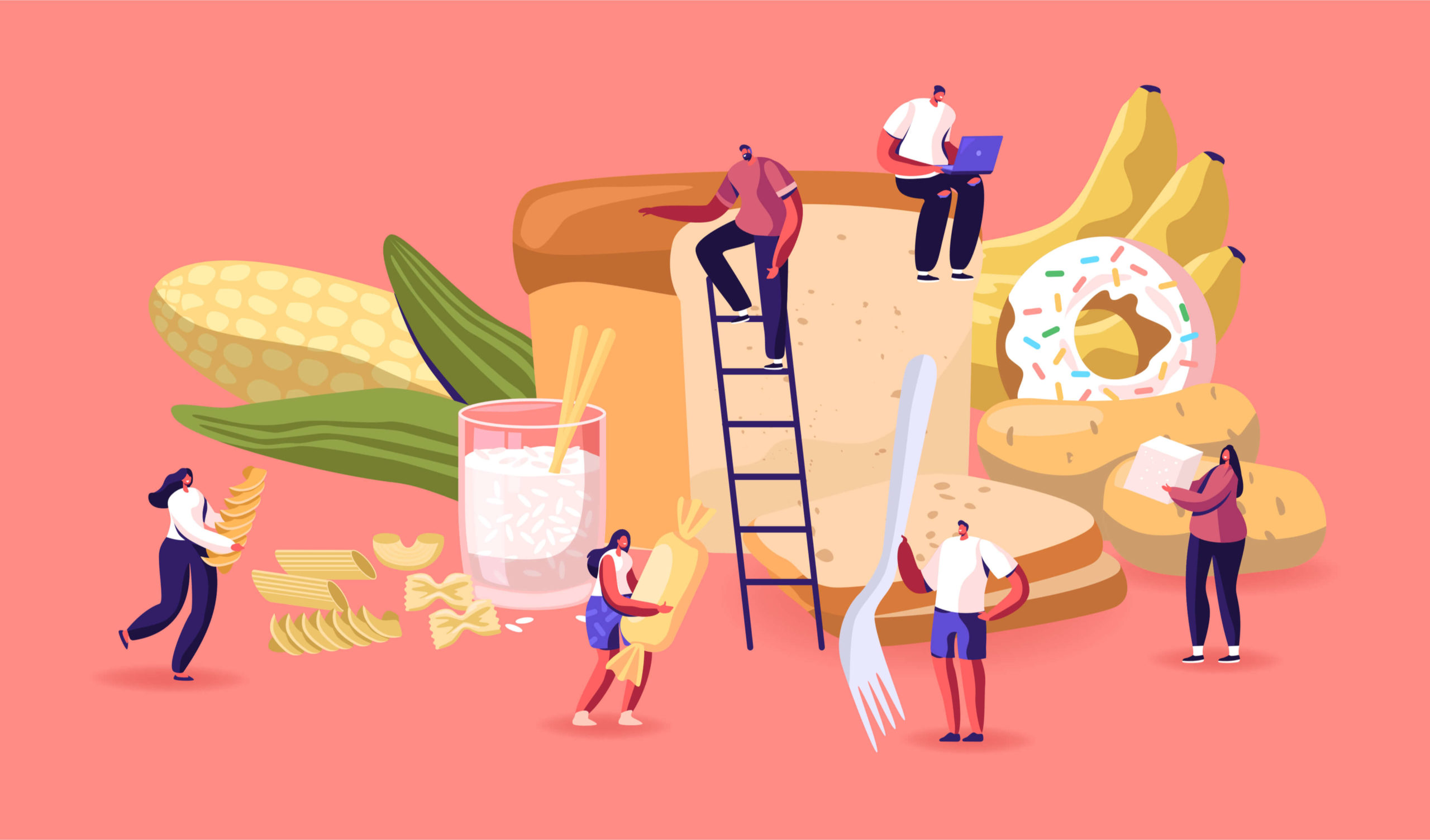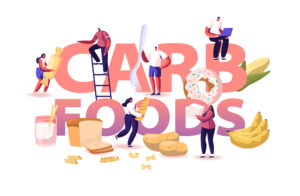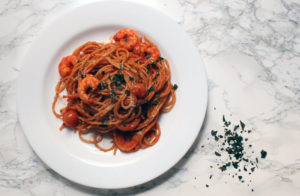Nowadays, carbohydrates get a bad reputation. The latest fad diets focus on reducing or even cutting out carbs of a diet. As a dietitian I must warn you, these diets are actually not healthy. But let me explain why exactly. In this article I will tell you what carbs are, what types of carbs exist, and why you need them to have a balanced and healthy diet.
What are carbs?
Carbs or carbohydrates are one of three macronutrients (along with fat and protein) that we consume with food. On the molecular level carbs are made of carbon, hydrogen and oxygen.
In nutrition, carbohydrates include sugars (one and two molecule carbs like glucose, fructose or sucrose), complex carbs also called starches (long chains of glucose) and fiber. Fiber is a non-digestible carb with loads of benefits. If you want to learn more about fiber, check out my article, while in this article I will talk only about sugars and starches.
Starches are found in plants because it is their way of storing energy (glucose), and they store a lot of it. Animals (and humans), on the other hand, store theirs in glycogen, which can’t carry as much energy. This is why we say meat and fish don’t contain carbs, while in reality, they have trace amounts of it.
Simple VS complex carbs
Simple and complex carbs are often confused with fast and slow carbs. But it is not the same. First of all, fast carbohydrate means that it is quickly digested, absorbed and metabolized in the body. Slow carbs, on the contrary, take long time to digest, absorb and be turned into energy ; they act progressively without spiking blood sugar levels. So for example, simple carbs aka sugars that are naturally present in fruit and vegetables are not necessarily fast.
Let’s take white supermarket bread as an example. It is made with white refined flour. This flour is composed of starch (complex carbs). But they are not really slow, since refined flour is purely molecules of glucose. They contain too little fiber or fat to slow down carb digestion and absorption. On the other hand, unrefined flour and grains take longer to digest and absorb. That’s why it’s more accurate to classify carbs into whole and refined.
Sources
Sources of unrefined carbohydrates include whole grains (rice, couscous, quinoa, buckwheat,….), whole-wheat pasta and bread, fruit, vegetables, legumes. Refined carbs include refined grains, white flour and proccessed foods like biscuits, cookies, cakes and fast food.
Not all fruit and vegetables are made even. For example, starchy vegetables like potatoes are higher in carbs than others.
Last but not least, milk also contains sugar in the form of lactose. This molecule is the one that many people can’t digest.
So why do I need carbs?
Energy! It is the most reliable and sustainable source of energy for our organism. Every cell in our body needs energy in order to function. Some cells NEED glucose as energy source like red blood cells and neurons. All carbohydrates are eventually transformed into glucose in our body and then glucose is:
- used as instant energy source (during physical or mental exercise, for example)
- stocked in the liver and muscles in the form of glycogen (when you exercise your body will slowly transform glycogen into glucose and then into energy)
- transformed and stocked as fat, if glucose is not needed and glycogen stocks are full.
My next article will explain into more detail digestion, absorption and metabolism of carbs, as well as how the glycemic index works, so stay tuned. And if you were wondering, if fat and protein could also serve as energy sources, the answer is yes. But they play many other roles in the body, while some protein and fat are essential (i.e. our body can’t produce them on its own). Whereas there are no essential carbs, we “only” need them for energy. So if you want the protein you consume to be used for muscle structure, and the fat for hormones, brain cells and membranes, then you’ll need carbs. Otherwise, your body will just use whatever it finds as fuel when it starts looking for energy. High-fat diets like keto rely on fat as a primary energy source. It is feasible but it is not healthy.
Complementary roles of carbs
Carbs also play a structural role in the body. For example, they are used to build DNA, RNA and ATP molecules.
Another role of carbs we often don’t take into account is… pleasure. From our first days as babies we are attracted to sweet tastes (1). And it’s not a crime to add some sweetness in your adult life. It’s actually healthy. Avoiding and drastically limiting carbs and added sugar can lead to eating disorders. And that’s something we all want to avoid.
How much?
The current French guidelines recommend consuming 40-55% of the total calorie intake from carbs (2). So, roughly half of all calories consumed should come from carb-rich plant foods like grains, vegetables and fruit. To meet these guideline, it is suggested to have a starchy food at every meal. In terms of quality, of course the more whole-grain products you consume, the better. But there is no obligation to avoid refined flour, rice and even sugar. What you could do is to have both whole and refined grain products in your diet.
And what about added sugar? Indeed this buddy should be limited, but there are different recommendations concerning sugar. The French dietary guidelines recommend consuming under 100 g of natural and added sugars (except for lactose) per day (3), but it’s quite hard to calculate, since fruit is high in fructose. Another way to see it, is to try and limit the amount of added sugar to 10% of the daily calorie intake (~50g for a 2000kCal diet). Another popular recommendation is from the American Heart Association and states to limit to under 25g of added sugar for women and 36g for men (4).
I think that 20-30g a day is a middle ground that is neither too restrictive nor too lax. But again it’s an approximate… if you don’t want sweets today, don’t go for it. Just like that, if one day you want a bit more, there’s no problem.
Practically speaking
Carbohydrates are one of three macronutrients along with fat and protein. Carbs are a sustainable and reliable source of energy and our cells’ favorite energy source. It is recommended to get 40-55% of daily calories from carbohydrates. Carbohydrate sources include grains, bread, pasta, fruit, vegetables, legumes, table sugar and most processed foods. It is important to differenciate whole sources of carbohydrates like whole grains, fruit, vegetables and legumes and refined like refined grains, table sugar and processed foods. The more whole carb-foods you have in your diet, the better. It is also recommended to have a starchy food at every meal.
But carbs and especially sugar have another role… pleasure. There are no benefits to avoiding sugar completely. 20-30 g per day is reasonable. So, overall carbs are not bad! Only excessive carbs (excessive calories) are stored as fat. So go ahead and enjoy your favorite pasta!
Sources
- https://pubmed.ncbi.nlm.nih.gov/21508837/
- https://www.google.com/url?sa=t&rct=j&q=&esrc=s&source=web&cd=&ved=2ahUKEwidjKqtufHvAhUOJhoKHX4cD_QQFjAAegQIAhAD&url=https%3A%2%2Fwww.anses.fr%2Ffr%2Fsystem%2Ffiles%2FNUT2012SA0103Ra-1.pdf&usg=AOvVaw1jBQwgZIfRC991v28kqAw0
- https://www.anses.fr/fr/content/sucres-dans-l%E2%80%99alimentation
- https://www.heart.org/en/healthy-living/healthy-eating/eat-smart/sugar/added-sugars



